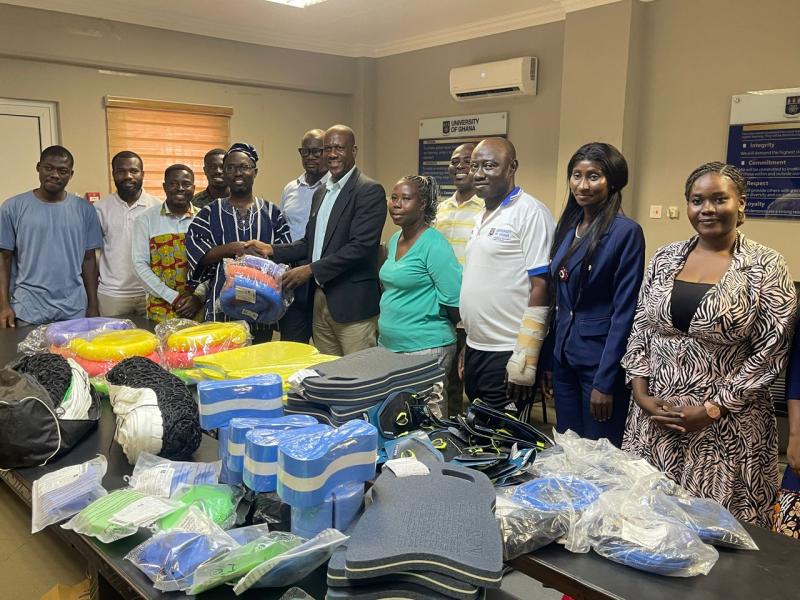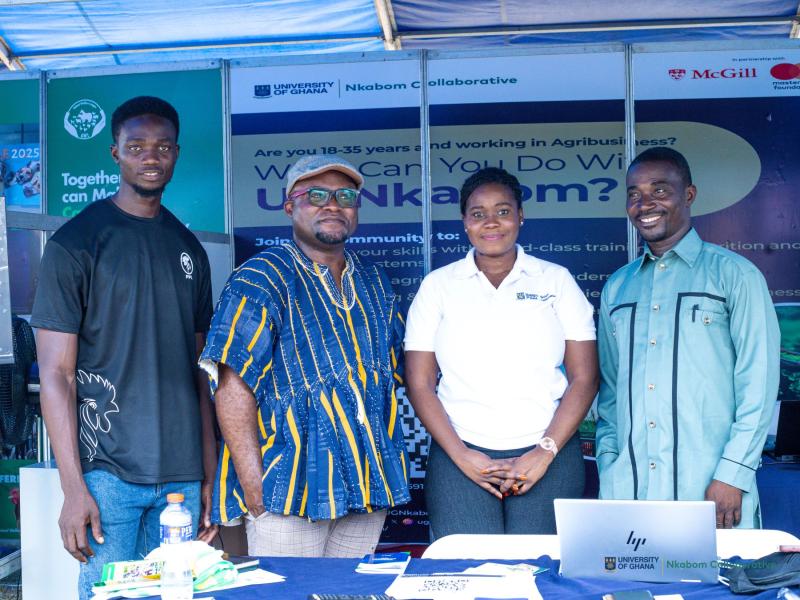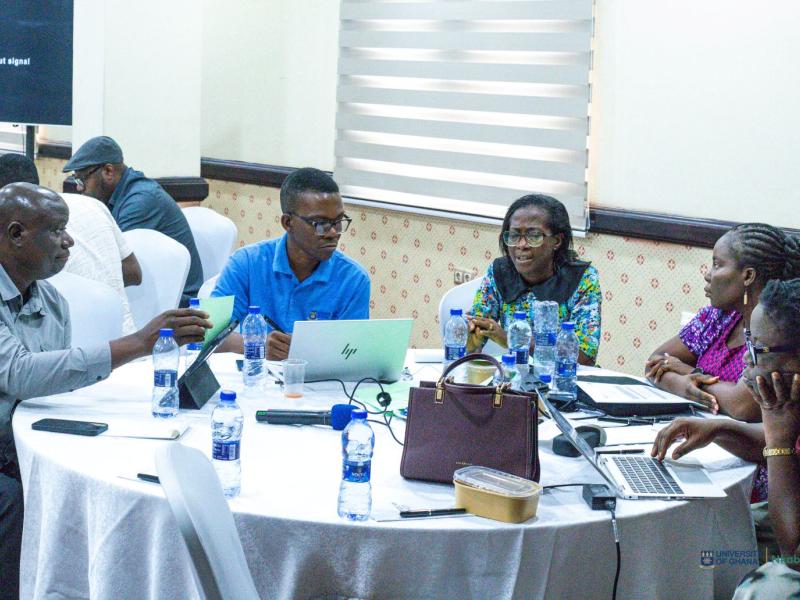Unlocking Agribusiness Dreams: Panelists at UG Nkabom Launch Call for Youth-Centred Financing

The forum discussion, held as part of the grand launch of the Collaborative at the University of Ghana, tackled a central barrier facing youth-led agribusinesses: financial exclusion. From policy bottlenecks to inaccessible loans and limited support for non-traditional value chains, the panel peeled back the layers of systemic constraints that prevent youth from fully participating—and thriving—in Ghana’s agri-food systems.
Underscoring the importance of access to finance, the forum's moderator, Comfort Ocran, framed it as the essential bedrock for youth potential. “Finance,” she stressed, " isn't just a talking point—it's the operational foundation. Without it, discussions about youth potential, digital equity, or transformative agri-food careers remain theoretical. We must confront this barrier head-on to move from possibility to action."
Mrs. Ocran who is also the Executive Director of Spring Board Road Show Foundation charged all the relevant stakeholders —governments, financial institutions, and development partners— to move beyond lip service and design financing models that were accessible, flexible, and tailored to the realities of youth in agriculture, noting, “ The time to act is now—to unlock agribusiness dreams, we must first unlock access to finance.”

Several systemic issues emerged as the discussion deepened – digital tools, market access, and skills training. A panelist, the Health and Nutrition Technical Manager at World Vision, Awurabena Quayeba-Dadzie, drew attention to the high upfront investment needed to adopt digital tools such as Internet of Things (IoT), despite their criticality in ensuring competitiveness and transparency in modern agriculture.
About market access, it emerged that scaling mandatory yet vital regulatory, logistical, and packaging hurdles, were all tied to liquidity. “You can’t export an idea, you need capital to meet standards, access markets, and move products,” disclosed, CEO Chamber of Agribusiness Ghana, Anthony Morrison.

The growing disconnect between training and implementation held the attention of the panel. Accessing finance remained central to bridging this gap to enable the youth to turn their knowledge into action.
The discussions concluded on the note that real progress depended on cross-sector collaboration—not isolated interventions. For instance, tools like SMS-based price alerts could help protect farmers from market exploitation—but only if supported by telecom partnerships and seed funding. The conversation made clear that without deliberate coordination across sectors, even the most promising solutions risked being short-lived.

The occasion also marked the launch of the Entrepreneurship Mentorship track, and the Honours Programme, aimed at nurturing a new generation of agri-food leaders. Additionally, an exhibition showcasing ten (10) student-led start-ups developed through the Collaborative’s April, 2025 Idea Surgery and Bootcamp was held. Through posters and product displays, students demonstrated how targeted support and mentorship are translating into viable business ventures.
Key dignitaries who graced the occasion included the deputy minister for Ghana’s Ministry of Food and Agriculture, Hon. John Dumelo, and the Vice-Chancellor of the University of Ghana, Prof. Nana Aba Appiah Amfo. Others were the UG Nkabom Collaborative Lead, Prof. Richmond Aryeetey, and representatives of McGill University and Mastercard Foundation.

About UG Nkabom
UG Nkabom is a decade-long, multi-institutional initiative being implemented at the University of Ghana in partnership with McGill University and the Mastercard Foundation. It seeks to transform Ghana’s agri-food systems by placing youth at the Centre of education, entrepreneurship, and employment creation.
The initiative is structured around three core pillars. The Education Pillar focuses on education, experiential learning, and hands-on learning opportunities. The Entrepreneurship Pillar emphasizes entrepreneurship and innovation, offering tailored bootcamps, business incubation, and market linkage support. Centered on expanding access and the provision of targeted support to young women, persons with disabilities, and internally displaced persons, the Access and Success pillar creates pathways for meaningful inclusion in Ghana’s agri-food transformation.



